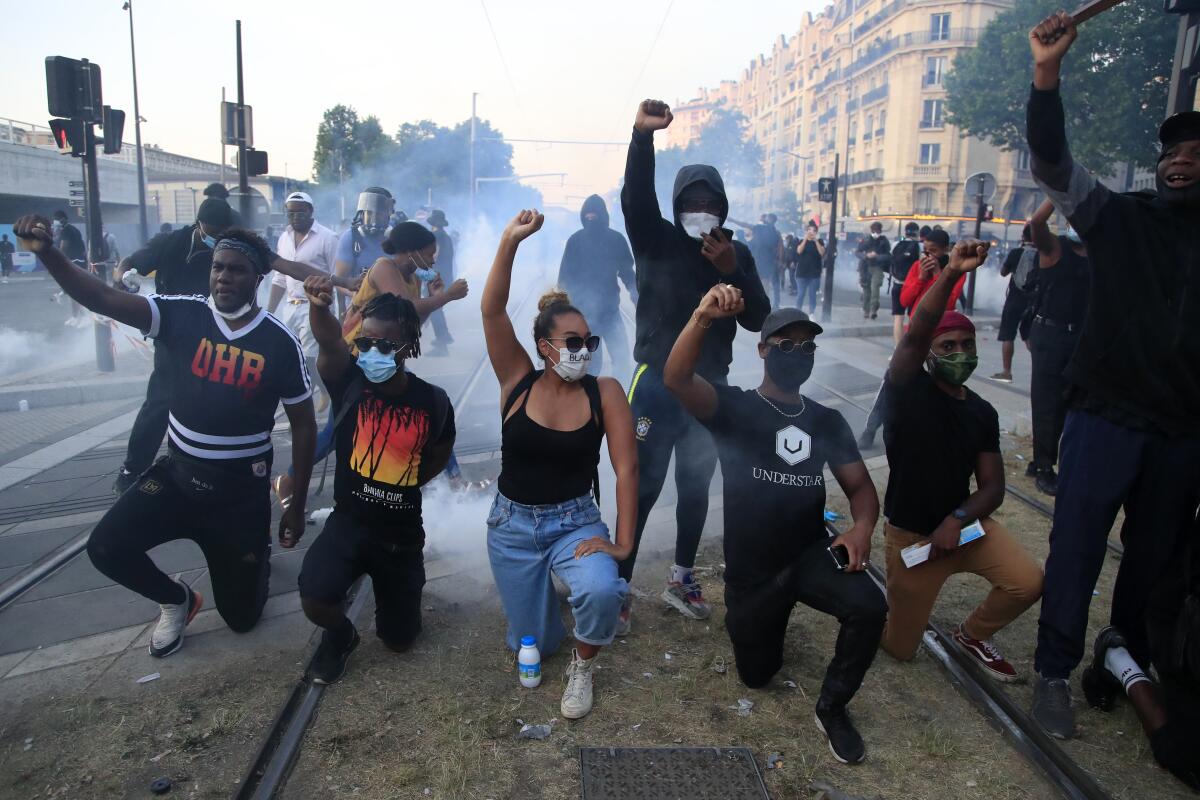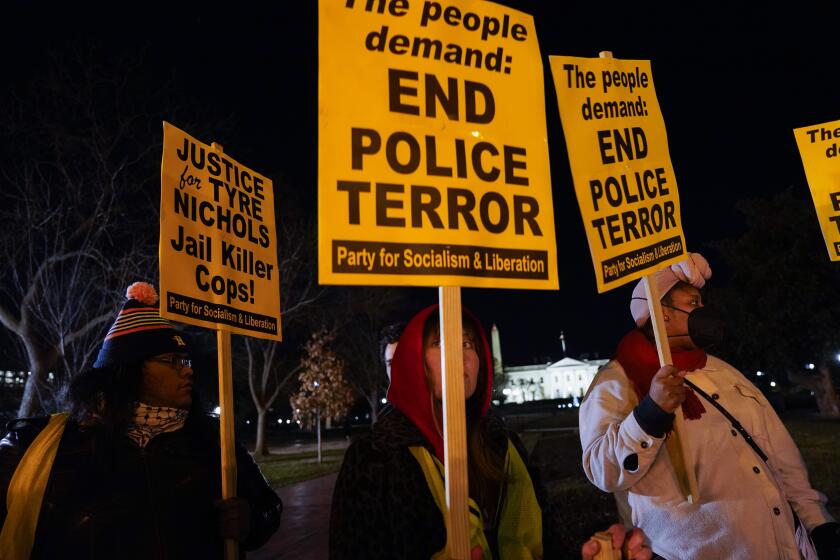French prime minister unveils plans to tackle racism

- Share via
PARIS — Name it, act on it, sanction it.
That is the focus of a new drive against racism, antisemitism and discrimination of all kinds that was announced Monday by French Prime Minister Elisabeth Borne.
The four-year plan starts with educating youth with a required yearly trip to a Holocaust or other memorial site exemplifying the horrors that racism can produce. It includes training teachers and civil servants about discrimination and toughening the ability to punish those denounced for discrimination.
Arrest warrants will be issued to those who use freedom of expression for racist or antisemitic ends.
Unusually, the plan includes fighting discrimination against Roma.
“There will be no impunity for hate,” Borne said, presenting her plan with 80 measures at the Institute of the Arab World.
Tolerance is on the rise, “but hate has reinvented itself,” she said.
“Our first challenge is to look squarely at the reality of racism and antisemitism and cede nothing to those who falsify history, who rewrite our past, forgetting or deforming some pages,” Borne added.
With five Black officers charged with murder in the beating death of Black motorist Tyre Nichols, what do we know about the role race plays in policing?
Some people working for years in French associations against racism and discrimination are skeptical about the plan, reject it outright or are reserving their judgment.
Even Kaltoum Gachi, a co-president of the anti-racist MRAP organization — which contributed a proposal — told the Associated Press that her group “will be vigilant to see if, concretely, [the plan] bears fruit.”
France’s government has rolled out a succession of plans over five decades, the latest in 2018, to grapple with racism, antisemitism and discrimination. Still, the estimated number of victims who suffered as least one racist, antisemitic or xenophobic attack was 1.2 million per year, according to the National Consultative Commission on Human Rights.
Social media and a rising far right, fearful of the disappearance of the nation’s Christian roots in an increasingly multicultural France, have added new dimensions to the fight against racism. Generations of citizens from former colonies in mostly Muslim north and west Africa have over decades given the nation a new face.
Gachi, the MRAP co-president and a lawyer, told those attending the presentation that 25 years ago, her younger brother Kamel failed in numerous requests for a job interview with an automaker — until he changed his name to Kevin.
Just on Monday, Gachi, a lawyer, said in an interview with the AP that she spoke with a youth with the same problem, a humiliating experience that leaves a lasting mark. She added that dignity, not just equality, is part of the equation.
Names, addresses and looks have long been a roadblock for people with origins outside France. Regular testing in private and public places of employment will be part of the new anti-discrimination effort, though the exact method is still being devised.
Netflix’s long-awaited ‘Harry and Meghan’ series is out and stirring up more controversy over the Montecito-based couple and the British royal family.
Borne said her plan will also offer victims of racism and discrimination the possibility to file complaints outside a police station, and in a “partially anonymous” way. She did not elaborate.
The plan will also make it “an aggravating circumstance” if someone in authority, such as a police officer, uses racist or discriminatory words to someone.
However, Borne’s plan dodges some sensitive areas, notably failing to directly tackle discrimination and racial profiling within the nation’s powerful police force.
Omer Mas Capitolin, a founder of the grassroots Community House for Supportive Development, said the measures are not sufficient.
“There is a denial of systemic discrimination,” not mentioned once in the plan, he told the AP.
His organization is one of a group of NGOs that launched a class-action suit in 2021 against France’s powerful police force, contending that it lawfully propagates a culture leading to systemic discrimination in identity checks. But for Mas Capitolin, who spoke on a personal level, alleged systemic discrimination goes beyond law enforcement to sectors like housing and jobs.
Mas Capitolin also criticized the timing for unveiling the plan on a day parliament opens debate on a hotly contested pension plan and on the eve of a planned protest march.
More to Read
Sign up for Essential California
The most important California stories and recommendations in your inbox every morning.
You may occasionally receive promotional content from the Los Angeles Times.















